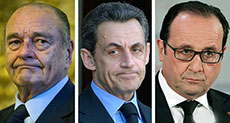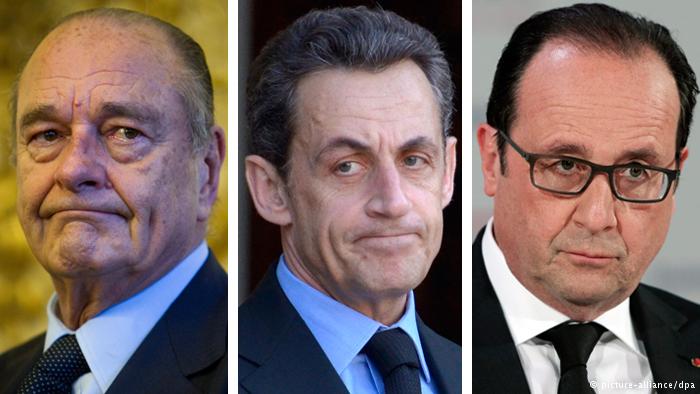New Spy Scandal Pits US into Stormy Crisis with Important Ally

Nadine Shallaq - al-Akhbar
A new spy scandal has pitted the United States into a stormy crisis with one of its most important allies, after a similar crisis with Germany in 2013.

Five documents leaked by ‘WikiLeaks' from the ‘National Security Agency', from the period between 2006 to 2012, and described as ‘top secret', appeared sufficient to create a crisis between Washington and Paris, and to raise a storm of reactions from official French government media.
Immediately following that, a phone call between French President Francois Hollande and his US counterpart Barack Obama was held to deescalate the situation.
The scandal, which was publicized by the "Liberation" newspaper and the "Mediapart" news site, dealt with the three heads of the Republic. Firstly, Jacques Chirac, who wanted to give Terje Rod-Larsen the post of Deputy Secretary-General of the United Nations, or any position with similar responsibilities.
Secondly, Nicolas Sarkozy, who was confident that he himself will find a solution to the global financial crisis, "because Washington does not take his advice into account", and who has sought to revive the peace process without the International Quartet and the United States.
Finally, the current President Francois Hollande, who has worked to solve the crisis in Greece, and has explored the consequences of its [possible] exit from the Euro, this without referring back to German Chancellor Angela Merkel, but rather teaming up with her opponents from behind her back.
In addition, the documents also dealt with a number of advisers, such as Jean-David Levitte [in the era of Chirac and Sarkozy] and Claude Gueant [in the era of Sarkozy], and also officials at the presidential palace, and in the Ministry of Foreign Affairs, such as spokesman Bernard Valero or Laurence Tubiana.
Hollande described US spying on French leaders as "unacceptable", warning that Paris will not tolerate acts that threaten its security. However, the French president's statements - expressed more bluntly by Marine Le Pen, the President of the French National Front opposition party, who said that the United States "is not an ally nor a friend" - subsided in intensity after contact between Hollande and Obama, in an effort to contain the tension.
The American president calmed the anxiety of his ally, and reiterated his commitment that there will not be a repeat of what he described as "practices that might have taken place in the past".
However, this phone call was not enough to answer questions raised by French government spokesman Stephane Le Foll, stemming from the "difficulty to visualize or understand the motives that make an ally spy on his allies; Allies who adopt - for the most part - the same strategic positions in world affairs".
Yet a clear answer may come from outside the diplomatic framework, and specifically from the newspaper "Le Figaro", which quoted Eric Dimanche, the director of a French center specializing in intelligence affairs, that "the United States has a huge appetite for espionage". Dimanche pointed out that "the uncovering of eavesdropping is not surprising, as this is a policy of American intelligence [gathering] that began since the end of World War II".
Although the ‘WikiLeaks' documents did not talk much about the techniques used to spy on French officials and other [figures], yet as indicated by "Liberation" in one of its reports, the United States established ten years ago a special unit for this purpose. This [special unit] lies within the [US] embassy, which is located in the Place de la Concorde, a few hundred meters from the Elysee Palace, the interior, justice, foreign, and defense ministries, as well as the National Assembly and other embassies.
Practically speaking, this unit was set up in order to eavesdrop on hundreds of phone calls. According to the newspaper, this embassy, like US embassies throughout the world, has on top of it a spy station belonging to the ‘Special Collection Service' [SCS], adding that this unit is a subsidiary of the National Security Agency and the CIA at the same time.
According to the documents uncovered by the German magazine ‘Der Spiegel' [based on the leaks from Snowden], the ‘Special Collection Unit' owns about 80 antennas for the same purpose, 19 of which are in Europe, specifically in Berlin, Geneva, Madrid, Stockholm, Vienna and Warsaw.
Based on what has been revealed, this station [in Paris] was established between 2004 and 2005.
In addition, the documents from Snowden uncovered another means of espionage, employed by the National Security Agency in cooperation with its British counterpart ‘Government Communications Headquarters' [GCHQ], which is used across a number of submarine cables.
Translated and Edited by website team
Comments




